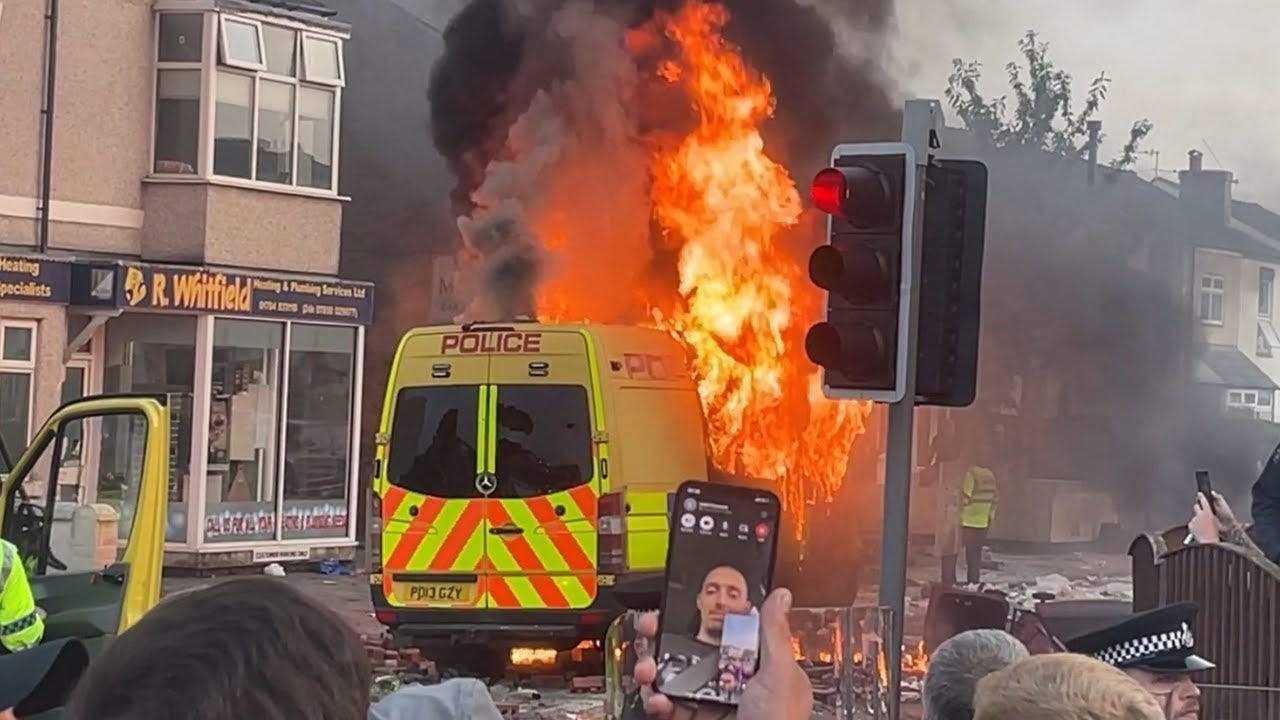Flames Over Southport
The rioting in the United Kingdom triggered by the murder of three little girls was a display of rage that had been a long time coming.
As I look ahead, I am filled with foreboding; like the Roman, I seem to see “the River Tiber foaming with much blood.”
—Enoch PowellNote: This is my first paid post since I picked up some new readers, so if you are a newcomer, I hope you’ll understand and consider upgrading your subscription. I’m very fortunate that Substack is an appreciable source of income for my family. I am doing this all on my own without so much as a proofer. All your support means a lot.
Axel Rudakubana was born in Cardiff and raised in Banks to Rwandan parents. His was a devout Christian household that wove itself into the tapestry of local faith life. The sound of singing would often drift from the confines of their home out to the cul-de-sac in which they lived. Practice for an appearance at London’s Shaftesbury Theatre. Neighbors considered him an ordinary and “quite choir boy.” So quiet, in fact, that some said they rarely saw him in all the years living there.
On July 29, Rudakubana, then 17, took a cab to the seaside town of Southport. The car stopped at a studio where children were learning to dance and make bracelets. He stepped to the curb in a black hood with a knife and went inside, where he began stabbing children and adults. An onlooker heard blood-curdling screams and saw kids fleeing the building bearing wounds from Rudakubana’s curved blade. He killed three little girls in the end. Ages nine, seven, six. Five other children and two adults were seriously injured but survived the rampage.
The alleged killer wore a smile when he entered the room at Liverpool Crown Court. Outside, the smoke of unrest lingered in the air. Raucous protests and rioting had rocked the streets and would continue for days, stretching to towns and cities across England and Northern Ireland. The killings served as a flashpoint for frustrations that had seethed beneath the surface of life in the United Kingdom and elsewhere in the West. Immigration, multiculturalism, globalization—all imposed upon a populace that feels its back against the wall. But the unrest has also ushered in new forms of despotism and surveillance that could now make life harder for the opponents of the status quo.




